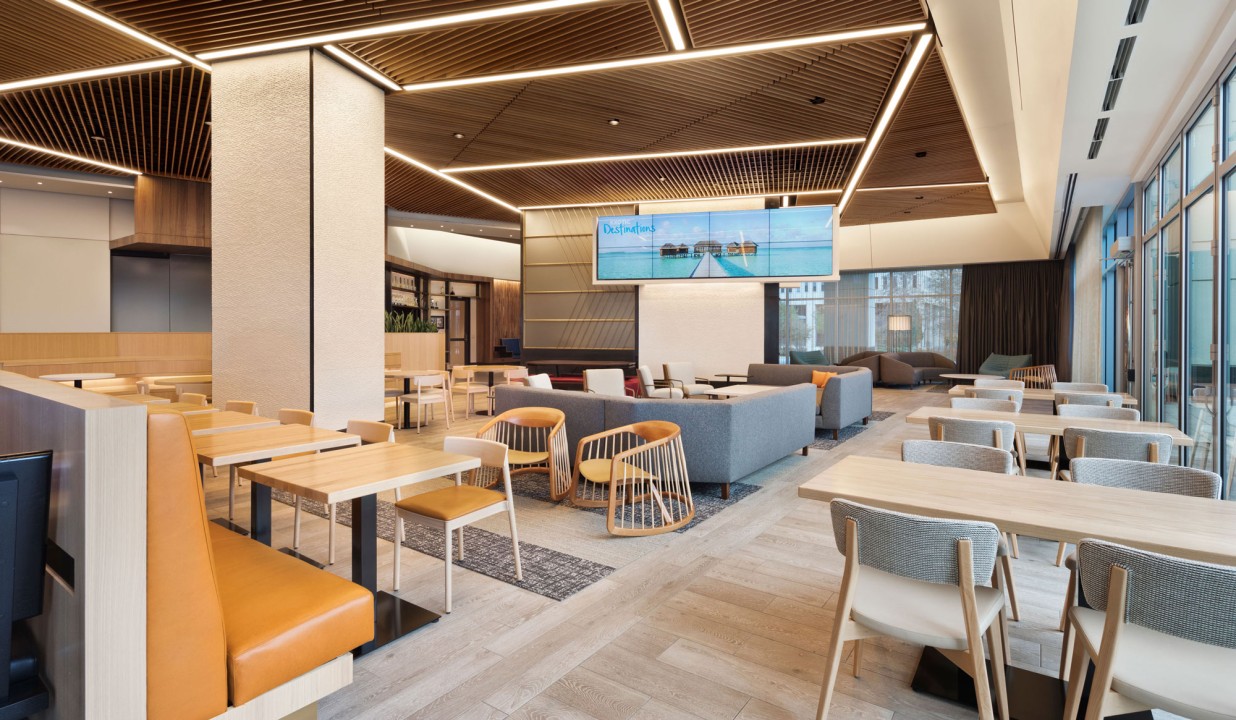In the world of hotel design, creating a comfortable and inviting environment for guests is paramount. One often overlooked aspect of this design process is the role of acoustics. The way sound travels within a space can greatly impact the overall experience of guests, affecting their relaxation, sleep quality, and overall satisfaction. In this article, we will explore the importance of acoustics in hotel design and how it can be effectively utilized to enhance the guest experience.
Sound plays a crucial role in shaping our perception of a space, and in a hotel setting, it can either enhance or detract from the overall guest experience. Excessive noise from neighboring rooms, loud corridors, or outside traffic can disrupt guests’ peace and quiet, leading to discomfort and potentially affecting their quality of sleep.
Hotel acoustic design involves implementing soundproofing measures to reduce external noise from traffic, neighboring rooms, and common areas and ensuring a comfortable and restful stay for guests.
Hotel designers must consider various factors when addressing acoustics in their design process. This includes the layout of the rooms, the materials used in construction, and the placement of sound-absorbing elements such as carpets, curtains, and wall coverings. By strategically incorporating these elements, designers can create a more peaceful and relaxing environment for guests.
Ultimately, a well-thought-out approach to acoustics in hotel design can lead to increased guest satisfaction, better sleep quality, and a more enjoyable stay overall. By prioritizing the auditory experience alongside visual and tactile elements, designers can create a truly immersive and welcoming environment for guests to enjoy.
The Impact of Acoustics on Guest Experience
When guests stay in a hotel, they expect a certain level of comfort and tranquility. Unwanted noise such as traffic sounds, elevator dings, or loud conversations from neighboring rooms can disrupt this sense of peace and relaxation. Poor acoustics can lead to complaints from guests about noise disturbances, affecting their overall satisfaction with their stay.
Hotels need to address the issue of noise disturbances by implementing soundproofing solutions such as double-pane windows, heavy curtains, and carpeting to absorb sound. Additionally, establishing quiet hours, providing white noise machines, and offering earplugs can also help mitigate noise disruptions for guests. By prioritizing sound control, hotels can enhance the overall guest experience and ensure that visitors have a peaceful and restful stay.
Key Considerations in Hotel Acoustic Design
When designing the acoustics of a hotel, several key factors need to be taken into account to ensure optimal sound quality and guest comfort. One of the primary considerations is the selection of appropriate building materials that can help absorb or block sound transmission.
Choosing materials with sound-absorbing properties such as acoustic ceiling tiles, carpets, drapes, and wall panels can help reduce noise levels within the hotel, creating a more peaceful environment for guests. Additionally, using materials with sound-blocking capabilities, such as double-glazed windows and solid doors, can prevent outside noise from entering guest rooms. Proper placement of sound-absorbing and sound-blocking materials throughout the hotel can also help to minimize echoes and reverberations, enhancing the overall acoustics of the space. By carefully selecting and strategically placing these materials, hotel designers can create a quiet and comfortable atmosphere that promotes relaxation and restful sleep for guests.
Technological Solutions for Acoustic Control
Advancements in technology have made it easier for hotels to control and manipulate acoustics within their spaces. Sound masking systems, for instance, can help reduce the intelligibility of speech and mask unwanted noise, creating a more private and peaceful environment for guests.
Additionally, hotels can utilize soundproofing materials and strategic placement of audio equipment to further enhance the acoustics in their spaces. This not only improves the overall guest experience but also helps in maintaining a positive reputation for the hotel. Overall, advancements in technology have provided hotels with effective tools to create a more comfortable and enjoyable environment for their guests through better control of acoustics.
Case Studies: Successful Implementation of Acoustic Design
Several hotels around the world have successfully implemented acoustic design principles to create a tranquil and comfortable environment for their guests. For example, the 1 Hotel Brooklyn Bridge in New York City features a nature-inspired design with materials that absorb sound, creating a calming oasis amidst the bustling city.
Another example is the Aman Tokyo in Japan, which utilizes traditional Japanese design elements such as shoji screens and tatami mats to enhance sound insulation and create a peaceful atmosphere for guests. These hotels demonstrate how incorporating acoustic design can greatly improve the overall guest experience by reducing noise levels and promoting relaxation.
Conclusion
Acoustics play a vital role in shaping the guest experience in hotels. By carefully considering the impact of sound on guest comfort and satisfaction, hotel designers can create spaces that are not only visually appealing but also acoustically comfortable. Through the use of appropriate building materials, technological solutions, and strategic design choices, hotels can enhance the overall quality of the guest experience and differentiate themselves in a competitive market.
Stay in touch to get more updates & news on Essential Tribune!








